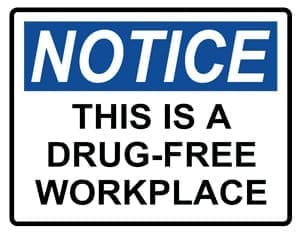Federal Contractors and Grant Recipients: Maintaining a Drug-Free Workplace
In 1988, Congress passed the Drug-Free Workplace Act, which requires organizations that are awarded federal grants and contracts to establish certain procedures. With the recent legalization of marijuana in Michigan, it is a good time to review those requirements. Although marijuana is legal in Michigan, it is still illegal under federal law. When reviewing your policies and procedures think about these considerations.
#1 Is your business covered under the Drug-Free Workplace Act?
Under the Drug-Free Workplace Act, any organization that receives federal grants must be in compliance. Federal contracts, on the other hand, only need to comply if the value of the contract is over $100,000 and if the contract, or a part of the contract, will be performed in the United States.
#2 What are the necessary procedures?
Given the discrepancy in state and federal law, employers should make their position on marijuana and marijuana testing clear to their employees. In general, the Drug-Free Workplace Act requires that employers inform employees:
- of the dangers of drug abuse in the workplace,
- of its drug-free workplace policy,
- of penalties that may be imposed on employees for policy violations,
- on any available counseling, employee assistance, etc., and
- that possession, use, sale, or distribution in the workplace is prohibited.
#3 Drug Testing
The Drug-Free Workplace Act requires employers to make a good faith effort to maintain a drug-free workplace, but there is no drug testing requirement. However, in highly regulated industries, drug testing may be required by another agency, like the Department of Transportation. Drug testing may also be an important component of workers’ compensation investigations and other internal investigations.
#4 Training
Employers should provide training to their key employees, like front-line supervisors and managers. These key employees should be able to recognize signs of marijuana impairment and should be prepared to minimize the risk to your organization by taking corrective safety action as needed.
Questions?
This is a great opportunity to reach out for help in reviewing and revising your drug-free workplace and drug testing policies. Contact an employment law attorney at Fausone & Grysko, PLC for help navigating marijuana- and employment-related issues. Call us at (248) 380-0000 or online at FB-Firm.com.

